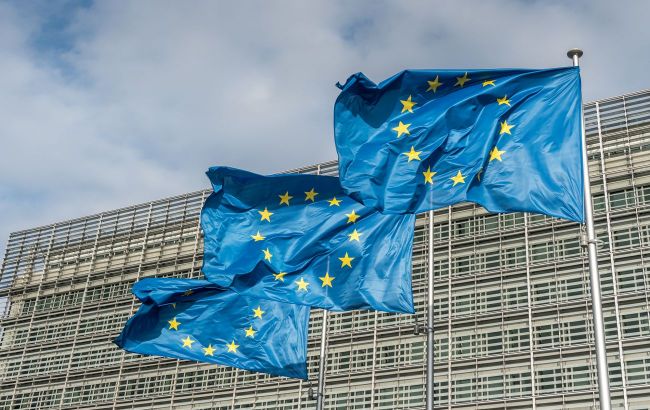EU Council approves 14th package of sanctions against Russia
 EU Council adopts 14th package of economic and individual sanctions against Russia (Photo: Getty Images)
EU Council adopts 14th package of economic and individual sanctions against Russia (Photo: Getty Images)
The EU Council has adopted the 14th package of economic and individual sanctions against Russia for its full-scale invasion of Ukraine, according to the European Council's press service.
These measures target high-value sectors of the Russian economy, such as energy, finance, and trade, further complicating efforts to bypass EU sanctions.
Today's package includes restrictive measures against an additional 116 individuals and entities responsible for actions undermining or threatening Ukraine's territorial integrity, sovereignty, and independence.
LNG
Specifically, the EU Council has introduced a ban on the transshipment of Russian LNG in the EU for onward shipment to third countries. The restriction applies to ship-to-ship transfers as well as ship-to-shore transfers. However, the ban does not extend to LNG imports into the EU.
Additionally, new investments in LNG projects in Russia, such as Arctic LNG 2 and Murmansk LNG, are prohibited. Providing goods, technologies, and services for these projects is also restricted.
The EU Council has also approved restrictions on importing Russian LNG through EU terminals not connected to the gas system.
Combating sanctions evasion
To make it more difficult for Russia to circumvent sanctions and to hinder its war efforts in Ukraine, the EU will require companies to be responsible for the actions of their subsidiaries in third countries if they help to bypass sanctions. There will also be restrictions on re-exporting military equipment produced in the EU to Russia.
Technology transfer agreements must include a clause prohibiting their use for producing goods for Russia.
Finance
EU companies outside Russia are prohibited from connecting to Russia's alternative to SWIFT, the Financial Message Transfer System (SPFS). Transactions with targeted credit and financial institutions and cryptocurrency providers established outside the EU are also banned.
Funding of political parties and other organizations
In response to Russia's interference in EU democratic processes, the Council decided to ban political parties, NGOs, think tanks, and media outlets in the EU from receiving funding from the Russian state and its controlled entities. This measure does not restrict journalists from conducting research and interviews.
Transport
For the first time, the EU has imposed sanctions on specific vessels aiding Russian aggression in Ukraine. These vessels are banned from entering EU ports and receiving services.
Sanctioned vessels are involved for several reasons, including:
- Transporting military equipment for Russia
- Shipping stolen Ukrainian grain
- Supporting the development of Russia's energy sector (LNG transportation and transshipment)
Sanctions also target Putin's "dark fleet," which evades EU and Coalition price cap restrictions by using deceptive shipping methods and ignoring international standards.
A total of 27 such vessels have been sanctioned.
Import-export control and restrictions
The sanctions list now includes 61 organizations assisting the Russian military-industrial complex, including those from third countries. Restrictions on the export of dual-use goods and goods strengthening Russia's defense sector have been tightened.
The prohibited goods list has been expanded to include machinery, all-terrain vehicles, chemicals, manganese ores, rare earth metals, plastics, earthmoving machines, monitors, and electrical equipment.
Importing helium from Russia, a significant source of income for the regime, has been restricted.
Additionally, Liechtenstein has been added to the list of partner countries that implement comprehensive restrictive measures on the import of iron and steel from Russia, and comprehensive import control measures equivalent to those of the EU.
Protection of EU operators
The Council allows EU operators to seek compensation for damage caused by Russian companies due to sanctions and expropriation. It also creates a mechanism for listing companies barred from operations for interfering with arbitration and judicial processes.
Other measures
In response to Russia's actions limiting the rights of EU intellectual property owners, the EU Council supported a ban on applications for certain intellectual property rights (patents, trademarks, designs) in the EU and restrictions on using already registered rights.
Moreover, the EU Council endorsed a ban on purchasing, importing, transferring, or exporting cultural property from Ukraine if there is reason to believe they were illegally exported.
EU sanctions against Russia
Since Russia's full-scale aggression in Ukraine began, the EU has steadily increased sanctions pressure. The 13 previous packages have significantly affected the Russian economy and military capability.
The formal agreement on the EU ambassadors' 14th package of sanctions took place on June 20.

